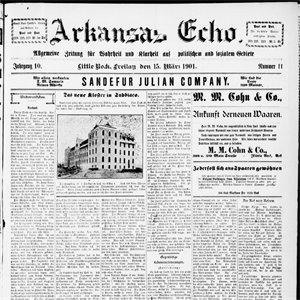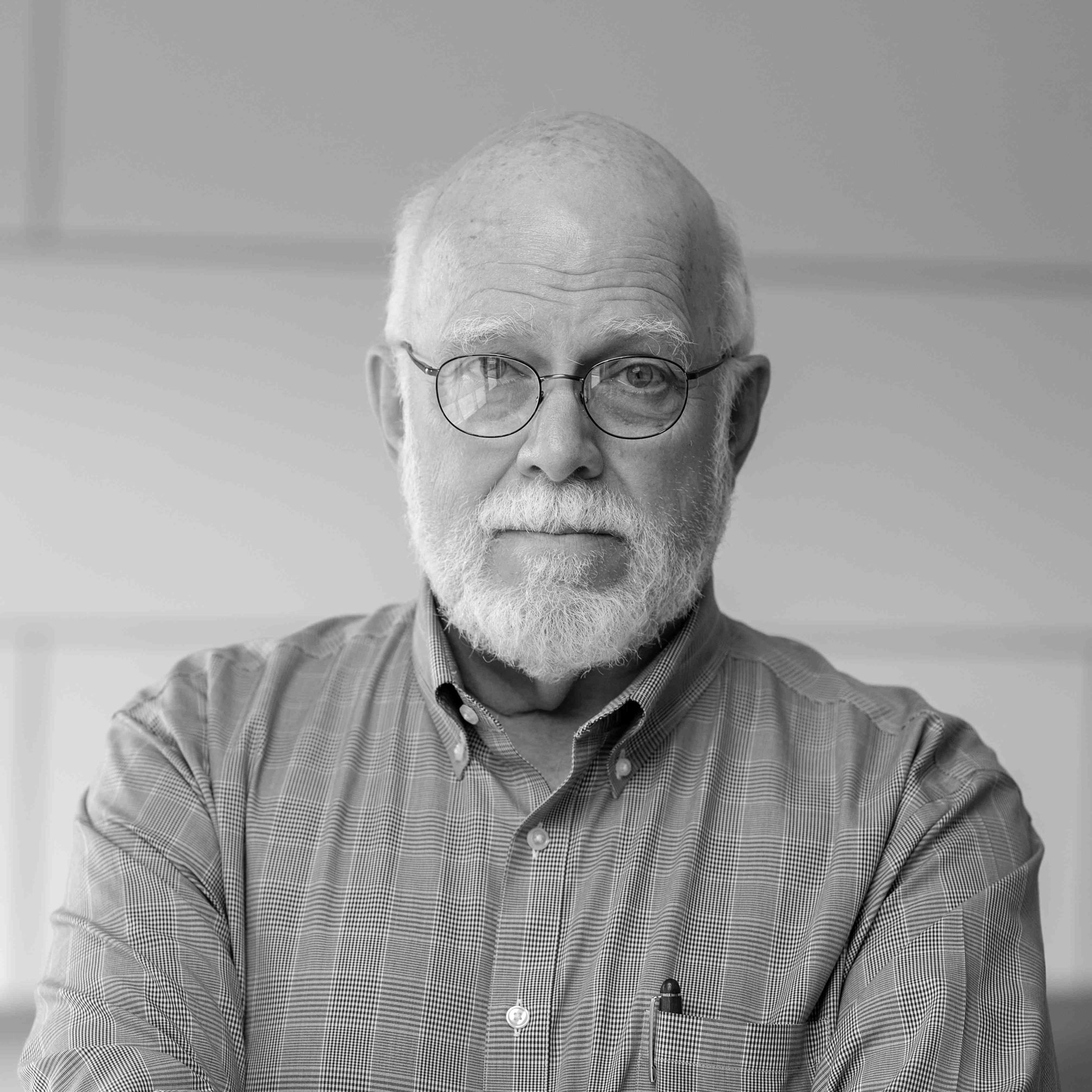An old friend of mine is fond of saying something to the effect of “in real life, you don’t get do-overs.”
Too often, this is all too true: there’s no way to remake a bad first impression or fix those pesky typos on a letter that has just been sent, un-spill a bottle of India ink (don’t ask), or stretch out a board that’s been trimmed too short. There are fixes, to be sure, but few opportunities to really wipe the slate clean, to do something right as if one hadn’t done it wrong in the first place.
But sometimes, when one least expects it, the opportunity for a true do-over pops up. And it’s only the foolish who pass up such gifts. And here at the Archives, we try to avoid foolishness.
One such appeared earlier this year, in the form of bound volumes of newspapers written in a foreign tongue. The paper in question is Das Arkansas Echo, one of two weekly German-language news outlets published in Little Rock in the late 19th and early 20th centuries. Das Echo is one of the papers we are contributing to the National Newspaper Digitization Project (of which you have doubtless read more in our social media posts); some time ago, the Archives (or, as it was back then, the Arkansas History Commission) filmed its run (or collection) of Das Echo and these microfilms were to be scanned, made searchable and loaded up to the Library of Congress’s Chronicling America website. Examining our original films revealed, however, that the quality was…well, “variable” is the kind word. The image density was inconsistent, as was the degree of focus. In short, significant portions of our microfilm edition were not good enough to digitize.
And then, the “do-over angel” appeared.
Darren Bell of our Microfilm staff noticed, in Dr. Kathleen Condray’s fine book on the German-language community in Arkansas,[1] an acknowledgement thanking the monks of Subiaco Abbey for allowing her access to their preserved copies of Das Echo. As it happened, the Archives had recently completed scanning several Subiaco publications, so a connection was there: we asked the Abbey’s archivist (and retired Abbot), Father Jerome Kodell, if we might possibly remedy the shortcomings of our existing edition by scanning or filming volumes from the Abbey’s collection. Father Jerome generously agreed, and so, over the past few months, Katie Couch of our staff has been scanning Das Echo using our large-format scanner. The files thus created will be both submitted to the Library of Congress for uploading and preserved as high-resolution microfilm created in-house (more on this in a future column).
In other words, this time, for this paper, we got a do-over. And that’s reason for celebration.
This good luck throws other persistent deficiencies into sharper focus, though. Das Echo, which published from 1890 into 1932, was not the only German-language paper in Little Rock or, for that matter, in Arkansas. Of the long-running Arkansas Staats-Zeitung, Echo’s competition, the Archives preserves…one issue from 1916. For the Stuttgart Germania, things are a little better: we preserve a handful of issues from 1908. Why do we have all or most of one paper, and almost nothing from the others? At this remove, one cannot really say with any certainty; perhaps there was only room for one such paper in the Capitol basement, long the History Commission’s storage area. Or perhaps one paper’s publisher did not bother to save runs which might have been consigned to the Commission. Or, just because. For whatever reason, we had what we had—imperfect microfilms of Echo—and now have something else: a do-over, a chance to do the job of preserving a durable copy of this historic publication better than it was done before. We are grateful and intend to make the most of it.
[1] Kathleen Condray, Das Arkansas Echo: A Year in the Life of Germans in the Nineteenth-Century South (Fayetteville: University of Arkansas Press, 2020)

